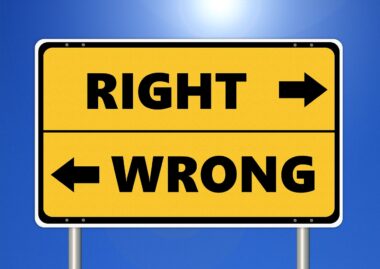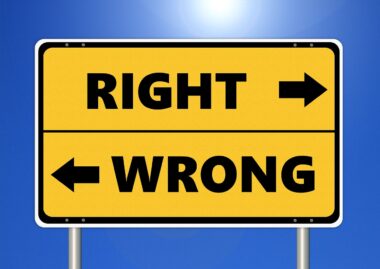Case Studies of Successful Ethical Leadership in Fortune 500 Companies
Ethical leadership is increasingly recognized as a vital characteristic for success in modern business landscapes. Successful Fortune 500 companies emphasize ethical principles long associated with prosperity and sustainability. Leaders like Satya Nadella of Microsoft have established a culture of trust and inclusivity, encouraging open conversations about ethics. Companies that effectively integrate ethical leadership into their core practices not only achieve financial success but also foster workplace morale. By focusing on transparent communication and employee empowerment, these leaders inspire various positive changes. Moreover, ethical leaders serve as role models, setting standards that influence the overall ethical climate of their organization. Research has yielded significant links between ethical leadership and employee engagement levels, illustrating the undeniable impact of ethical conduct. Fortune 500 companies are recognizing the pragmatic advantages of prioritizing ethical leadership as a tool for survival against economic challenges. Ethical leadership thus becomes a strategic business decision as it strengthens brand loyalty and enhances organizational reputation, leading to sustainable growth. It is essential for aspiring leaders to study these examples to cultivate their understanding of ethical principles and their practical implications in the business environment.
In examining Fortune 500 companies, significant ethical successes can be observed at Starbucks, under the leadership of Howard Schultz. Schultz instilled a deep-rooted philosophy of ethical consumption and socially responsible practices into the corporate culture. Starbucks aims to create a positive impact on communities while promoting fairness and transparency with suppliers. This commitment includes ethical sourcing of coffee beans, which fosters relationships with farmers while supporting sustainable practices. Schultz believed strongly in connecting the company’s success with social responsibilities. Through initiatives like the Coffee and Farmer Equity (C.A.F.E.) Practices, Starbucks illustrates an exemplary model of ethical leadership. Employees are encouraged to engage with ethical practices effectively, ensuring that stakeholder interests are balanced with the company’s profitability. Recognition of Starbucks in various sustainability indexes further showcases the power of Schultz’s ethical leadership model. Additionally, Schultz’s dedication to ethical decision-making empowers employees to act in accordance with the company’s values, reinforcing consumer trust. Overall, the Starbucks case exemplifies the advantages businesses can experience by integrating ethical practices within their operational framework. Companies that align ethical leadership with their mission are better positioned to face the challenges of the modern-day marketplace.
Unleashing Potential Through Ethical Leadership
Another noteworthy case of ethical leadership is illustrated by Unilever, particularly during Paul Polman’s tenure as CEO. Polman rejected traditional short-term profit approaches, instead advocating for long-term sustainability and ethical responsibility in businesses. His vision included the Unilever Sustainable Living Plan that seeks to minimize environmental impacts, improve health and well-being, and enhance livelihoods around the globe. Under his leadership, Unilever adopted a holistic approach, balancing financial performance with environmental and social impacts. This notion of sustainable business practices demonstrates that ethical leadership can lead to innovation while addressing pressing global challenges. Polman’s leadership attracted a strong workforce motivated by shared values, which allowed Unilever to outperform many competitors. Stakeholders recognized Unilever as a champion of ethical practices within the consumer goods sector. By establishing an ethical corporate culture, Polman showed that profits and social responsibility can coexist harmoniously. Investing in ethical leadership can yield significant returns by fostering loyalty among consumers and employees who share similar values. Other companies can learn valuable lessons from Unilever’s commitment to ethical leadership, implementing sustainable strategies that resonate with modern consumers’ demands.
Another exemplary case study of ethical leadership is Tesla, where CEO Elon Musk has made headlines for both innovation and a strong ethical compass. Musk has been a vocal advocate for clean energy and reducing carbon footprints. Tesla’s commitment to sustainability is evident through its market-leading electric vehicles that promote environmentally friendly transportation. Musk’s vision extends beyond financial profits; he aims to accelerate the world’s transition to sustainable energy. This bold approach has attracted a workforce dedicated to ethical objectives. Tesla’s disruptive technologies demonstrated that businesses can succeed while prioritizing innovation and ethical commitments. Musk strives for transparency with stakeholders and has often encouraged a culture of open communication within his organization. His ethical leadership reflects a dedication to improving societal welfare through technological advancements. While challenges and controversies surrounding Musk’s leadership can arise, the core focus on sustainability places Tesla at the forefront of ethical business practices. Investing in ethical leadership practices has proven beneficial for Tesla, showcasing the importance of aligning company missions with societal values. As more companies look to ethical leadership as a viable path to success, Musk’s vision provides an inspiring example of transformative leadership.
The Importance of Ethical Leadership in Fortune 500 Companies
Beyond Tesla and Starbucks, the practices embraced by Johnson & Johnson reflect profound ethical leadership through crisis management. The company faced significant scrutiny during the Tylenol crisis in the 1980s, challenging corporate ethics considerably. However, J&J’s response showcased a strong ethical commitment to consumer safety and transparent communications. Instead of prioritizing profits, the company’s leaders acted swiftly to recall products even at great financial loss. This ethical decision fortified consumer trust and loyalty over time, proving a critical lesson that ethics trump immediate financial concerns. Johnson & Johnson refurbished its reputation through addressing the crisis head-on with grace and integrity. Their famous Credo emphasizes a commitment to customers, employees, communities, and stakeholders, positioning it as a guiding principle for the company’s decisions. Ethical leadership requires courage, integrity, and a commitment to embody the company’s values even under pressure. Today, Johnson & Johnson is revered as a model of crisis management that not only salvaged its brand but also illustrated the power of ethical leadership in action. The Tylenol case serves as an often-cited reference for future leaders facing ethical dilemmas.
Lastly, the case of Merck and its handling of the Mectizan donation program further underscores the role of ethical leadership in Fortune 500 companies. Merck made a groundbreaking decision to donate Ivermectin, leading to the elimination of river blindness in parts of Africa and around the world. This decision reflected the company’s ethos and commitment to global health, illustrating that profitability doesn’t solely dictate business practices. Merck’s leadership stands out for emphasizing ethical considerations and the broader impacts of business decisions, setting a precedent for pharmaceutical companies. Under the guidance of former CEO Roy Vagelos, Merck prioritizes community needs over profit motives, enhancing its reputation as a socially responsible organization. The support for a significant public health issue exemplifies how ethical leadership leads to meaningful social impact, while also reinforcing brand integrity. Furthermore, Merck paved the way for other companies by demonstrating the potential for ethical leadership to inspire other organizations to prioritizes public health. The Mectizan program showcased how addressing social issues can align with business objectives, ultimately fostering a commitment to ethical practices and sustainability in corporate culture.
Concluding Thoughts on Ethical Leadership
In conclusion, successful ethical leadership within Fortune 500 companies has proven essential for driving positive societal outcomes. Across various case studies, the integration of ethical practices in business strategies has illustrated the undeniable connection between ethics and economic success. Companies such as Starbucks, Unilever, Tesla, Johnson & Johnson, and Merck have emphasized principles that shape their corporate cultures. Ethical leadership is not simply a moral compass; it serves as a strategic business advantage. By leading with purpose, organizations build trust and engagement from stakeholders. In today’s world, ethical leadership can greatly enhance company image and help navigate crises with resilience. Moreover, as stakeholders increasingly demand accountability, the spotlight intensifies on businesses to uphold ethical standards. As leaders advocate for ethical responsibilities, they inspire their teams to innovate, driving long-term success. More organizations must prioritize ethical leadership to create sustainable businesses that promote societal welfare. Future leaders must recognize that cultivating an ethical business culture is vital for navigating the challenges of modern enterprise. The case studies presented offer invaluable lessons showcasing the cumulative benefits of ethical leadership across industries.
In summary, the foundation of successful ethical leadership lies in a company’s commitment to transparent and socially responsible practices. Each case study demonstrates that ethical considerations can effectively coexist with profitability, offering examples for others to emulate. By learning from these leaders and their contributions towards a more ethical business environment, the next generation of corporate leaders can drive meaningful change. Through implementing similar ethical practices, businesses can realize opportunities for innovation, reputation enhancement, and stakeholder loyalty. Therefore, organizations striving for success must acknowledge the importance of ethical leadership in fostering sustainable relationships while delivering value for all stakeholders. Ultimately, the journey towards ethical leadership is not merely an obligation but a pathway to enduring success in business.





